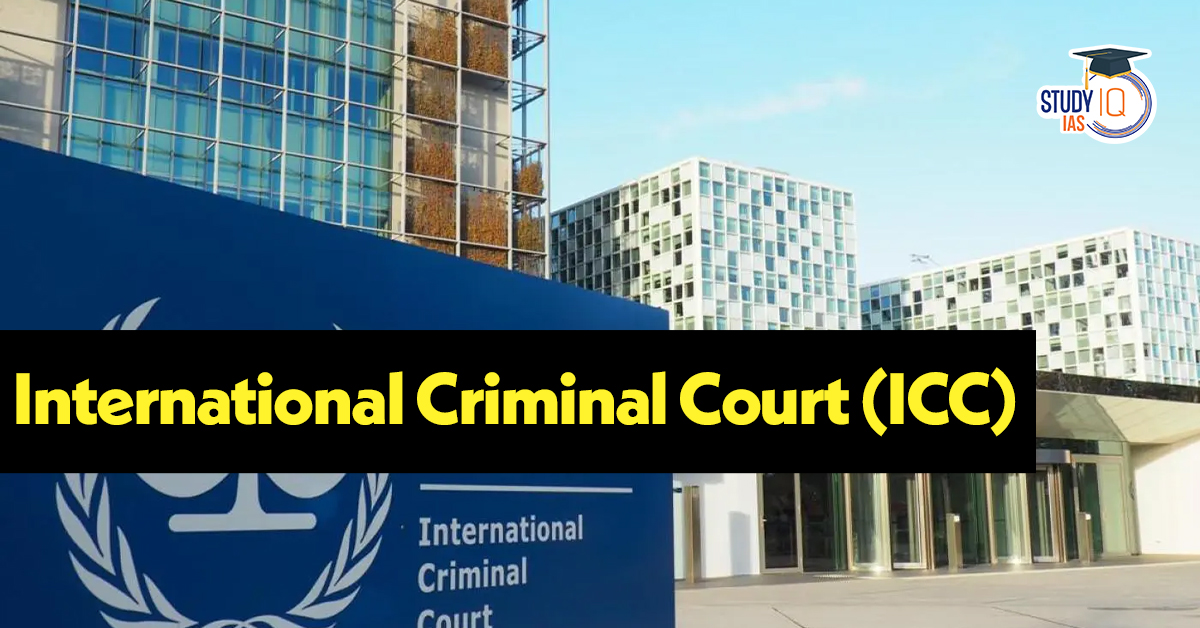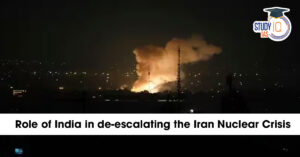Table of Contents
Context: The U.S. Trump administration imposed new sanctions on International Criminal Court (ICC) officials for investigating alleged war crimes by Israeli leaders and past U.S. officials, which the ICC called an attack on its independence.
About International Criminal Court (ICC)
- International Criminal Court (ICC) is a permanent judicial institution established in 2002 under the Rome Statute of 1998. It is headquartered in The Hague, Netherlands. which entered into force on 1 July 2002.
- Mandate: To investigate, prosecute, and adjudicate individuals accused of committing
- genocide,
- war crimes,
- crimes against humanity and
- The crimes of aggression.
- Members
- States Parties: 125 countries.
- Non-Members: Major countries like China, India, Israel, Russia, and the USA are not members.
- Role: Court of last resort → complements, not replaces, national courts.
- Composition: The Court has 18 judges, each from a different member country, elected for a nine-year term.
- ICC can only hear a case if either the country where the crime was committed or the perpetrator’s country of origin is a party to the Rome Statute.
- After issuing an arrest warrant, the ICC relies on countries to make arrests and transfer suspects to the ICC.
- Unlike the International Court of Justice (ICJ), it is not an organ of the United Nations.
Funding
- Contributions from States Parties.
- Voluntary contributions from governments, international organisations, individuals, and corporations.
Jurisdiction
- Prosecutes individuals (not states), unlike the International Court of Justice (ICJ).
- ICC can act if:
- The crime occurred in a State Party to the Rome Statute, OR
- The perpetrator’s nationality belongs to a State Party.
- Can only intervene if national courts are unwilling or unable to prosecute.
- Jurisdiction applies only to crimes committed after 1 July 2002.
Composition of ICC
- Judges: 18 judges (each from a different member state), elected for non-renewable 9-year terms.
- Presidency: 3 judges (President + 2 Vice Presidents) elected from among the judges; manage the court’s work and represent the ICC externally.
- Judicial Divisions:
- Pre-Trial Division
- Trial Division
- Appeals Division
- Office of the Prosecutor (OTP): Receives referrals, conducts investigations, and prosecutes cases.
- Registry: Provides administrative and operational support to chambers and the OTP.
Challenges in Enforcement
- No police force of its own.
- Relies on member states to arrest suspects.
- Needs international cooperation for enforcement, asset freezing, and extraditions.
International Criminal Court (ICC) Relation with the United Nations
- ICC is not a UN body, but has a cooperation agreement with the UN (Article 2 of the Rome Statute).
- UN Security Council can refer cases outside ICC jurisdiction (e.g., situations in non-member states).
Difference between International Criminal Court (ICC) & International Court of Justice (ICJ)
| Parameter | ICC (International Criminal Court) | ICJ (International Court of Justice) |
| Establishment & HQ | 2002, Hague (Netherlands) | 1946, Hague (Netherlands) |
| UN Relation | Independent- may receive case referrals from the UN Security Council | Official court of the UN, known as the World Court |
| Case types | Criminal prosecution of individuals | Contentious between parties, and advisory opinions |
| Subject matter | Genocide, crimes against humanity, war crimes, crimes of aggression | Maritime disputes, sovereignty, natural resources, trade, treaty violations and treaty interpretations, human rights, etc. |
| Funding | Contributions from parties to the Rome Statute, voluntary contributions from the UN, governments, corporations, organisations, etc. | UN |


 German Chancellor Visit to India in 2026...
German Chancellor Visit to India in 2026...
 Iran Nuclear Crisis and India’s Role f...
Iran Nuclear Crisis and India’s Role f...
 H1B Visa Program, Beneficiaries, Eligibi...
H1B Visa Program, Beneficiaries, Eligibi...




















